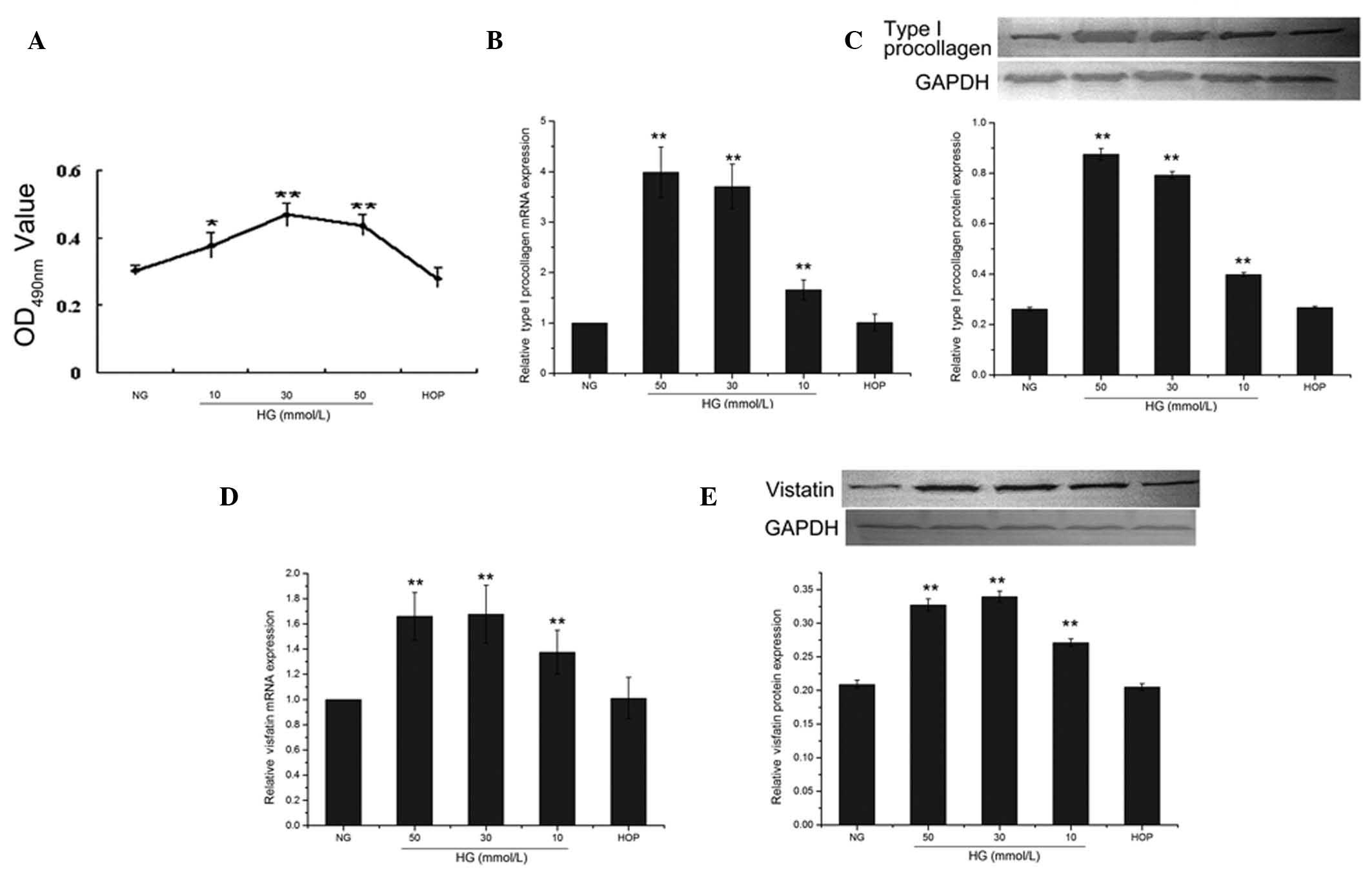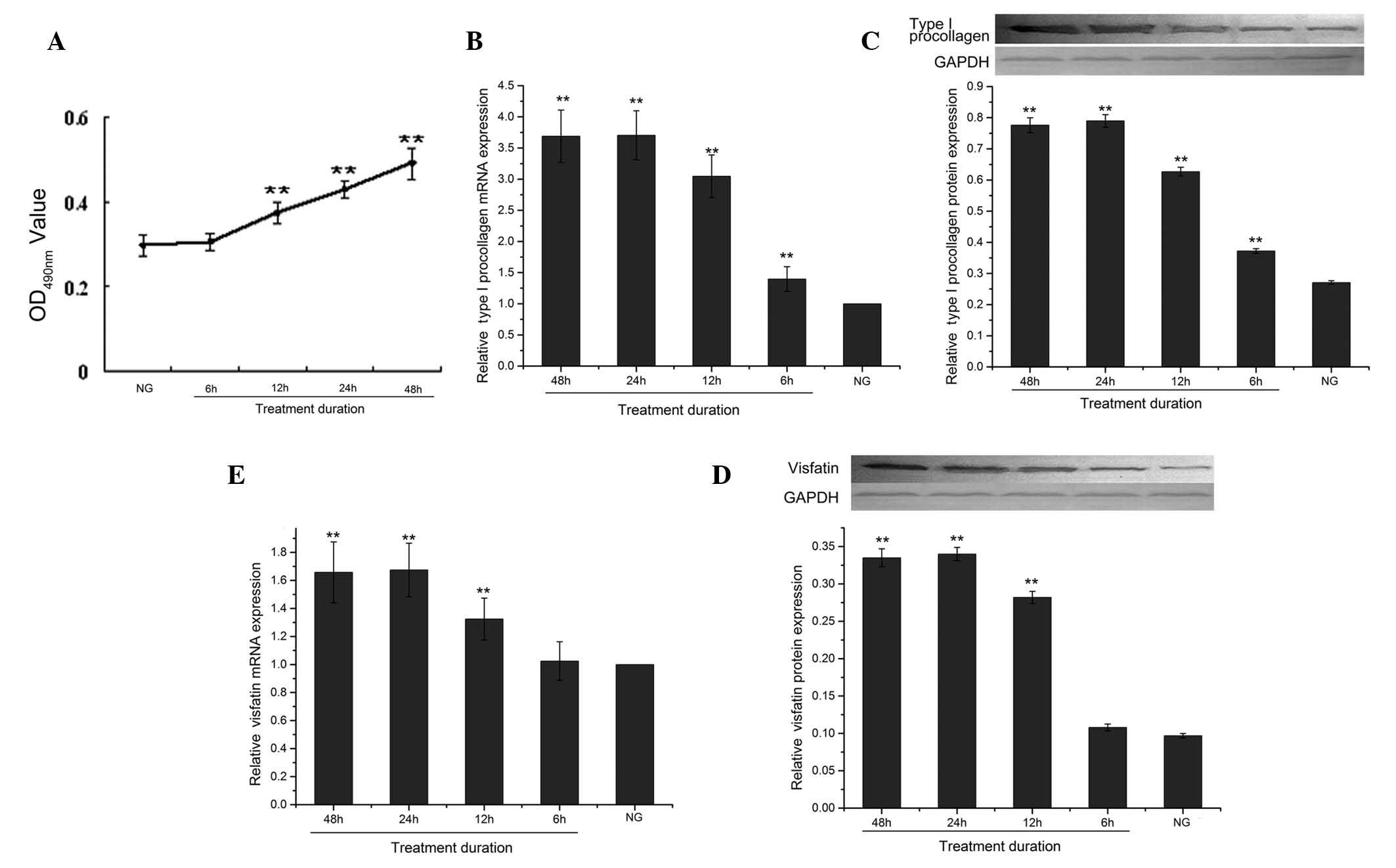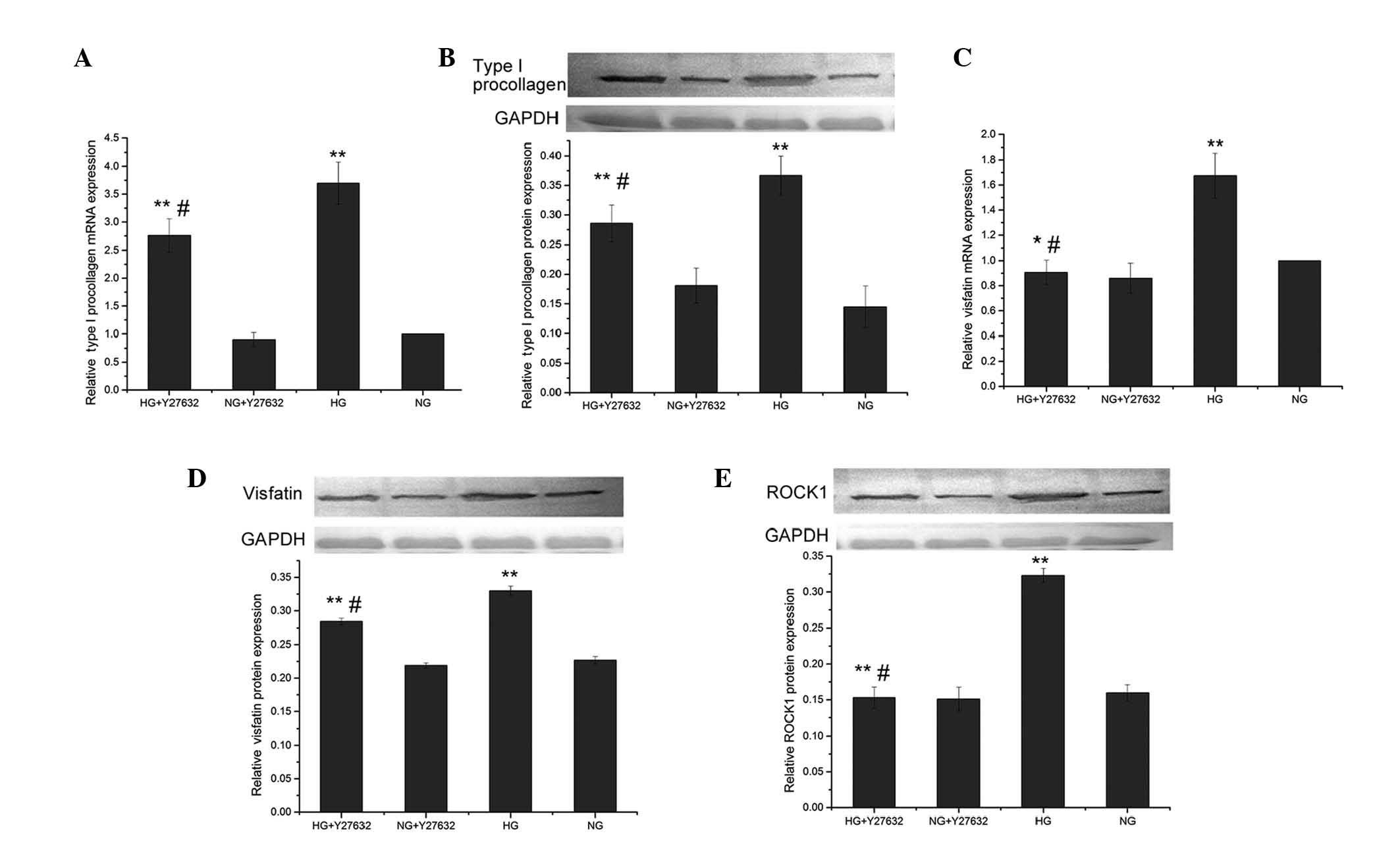|
1
|
Chavali V, Tyagi SC and Mishra PK:
Predictors and prevention of diabetic cardiomyopathy. Diabetes
Metab Syndr Obes. 6:151–160. 2013.PubMed/NCBI
|
|
2
|
King H, Aubert RE and Herman WH: Global
burden of diabetes, 1995–2025: prevalence, numerical estimates, and
projections. Diabetes Care. 21:1414–1431. 1998.
|
|
3
|
Cai L and Kang YJ: Oxidative stress and
diabetic cardiomyopathy: a brief review. Cardiovasc Toxicol.
1:181–193. 2001. View Article : Google Scholar : PubMed/NCBI
|
|
4
|
Watanabe K, Thandavarayan RA, Harima M,
Sari FR, Gurusamy N, Veeraveedu PT, Mito S, Arozal W, Sukumaran V,
Laksmanan AP, Soetikno V, Kodama M and Aizawa Y: Role of
differential signaling pathways and oxidative stress in diabetic
cardiomyopathy. Curr Cardiol Rev. 6:280–290. 2010. View Article : Google Scholar : PubMed/NCBI
|
|
5
|
van Heerebeek L, Hamdani N, Handoko ML,
Falcao-Pires I, Musters RJ, Kupreishvili K, Ijsselmuiden AJ,
Schalkwijk CG, Bronzwaer JG, Diamant M, Borbely A, van der Velden
J, Stienen GJ, Laarman GJ, Niessen HW and Paulus WJ: Diastolic
stiffness of the failing diabetic heart: importance of fibrosis,
advanced glycation end products, and myocyte resting tension.
Circulation. 117:43–51. 2008.
|
|
6
|
Mizushige K, Yao L, Noma T, Kiyomoto H, Yu
Y, Hosomi N, Ohmori K and Matsuo H: Alteration in left ventricular
diastolic filling and accumulation of myocardial collagen at
insulin-resistant prediabetic stage of a type II diabetic rat
model. Circulation. 101:899–907. 2000. View Article : Google Scholar
|
|
7
|
Tanaka T and Nabeshima Y:
Nampt/PBEF/Visfatin: a new player in beta cell physiology and in
metabolic diseases? Cell Metab. 6:341–343. 2007. View Article : Google Scholar : PubMed/NCBI
|
|
8
|
Pfützner A and Forst T: Comment on: Haider
DG, Schaller G, Kapiotis S, Maier C, Luger A, Wolzt M (2006) the
release of the adipocytokine visfatin is regulated by glucose and
insulin. Diabetologia. 49:1909–1914
Diabetologia. 49:2795author reply 2796,
2006.
|
|
9
|
Adya R, Tan BK, Punn A, Chen J and Randeva
HS: Visfatin induces human endothelial VEGF and MMP-2/9 production
via MAPK and PI3K/Akt signalling pathways: novel insights into
visfatin-induced angiogenesis. Cardiovasc Res. 78:356–365. 2008.
View Article : Google Scholar
|
|
10
|
Kim SR, Bae SK, Choi KS, Park SY, Jun HO,
Lee JY, Jang HO, Yun I, Yoon KH, Kim YJ, Yoo MA, Kim KW and Bae MK:
Visfatin promotes angiogenesis by activation of extracellular
signal-regulated kinase 1/2. Biochem Biophys Res Commun.
357:150–156. 2007. View Article : Google Scholar : PubMed/NCBI
|
|
11
|
Kannel WB, Hjortland M and Castelli WP:
Role of diabetes in congestive heart failure: the Framingham study.
Am J Cardiol. 34:29–34. 1974. View Article : Google Scholar : PubMed/NCBI
|
|
12
|
Gottdiener JS, Arnold AM, Aurigemma GP,
Polak JF, Tracy RP, Kitzman DW, Gardin JM, Rutledge JE and Boineau
RC: Predictors of congestive heart failure in the elderly: the
Cardiovascular Health Study. J Am Coll Cardiol. 35:1628–1637. 2000.
View Article : Google Scholar : PubMed/NCBI
|
|
13
|
Nichols GA, Hillier TA, Erbey JR and Brown
JB: Congestive heart failure in type 2 diabetes: prevalence,
incidence, and risk factors. Diabetes Care. 24:1614–1619. 2001.
View Article : Google Scholar : PubMed/NCBI
|
|
14
|
Falcão-Pires I, Hamdani N, Borbely A,
Gavina C, Schalkwijk CG, van der Velden J, van Heerebeek L, Stienen
GJ, Niessen HW, Leite-Moreira AF and Paulus WJ: Diabetes mellitus
worsens diastolic left ventricular dysfunction in aortic stenosis
through altered myocardial structure and cardiomyocyte stiffness.
Circulation. 124:1151–1159. 2011.
|
|
15
|
Galderisi M: Diastolic dysfunction and
diabetic cardiomyopathy: evaluation by Doppler echocardiography. J
Am Coll Cardiol. 48:1548–1551. 2006. View Article : Google Scholar : PubMed/NCBI
|
|
16
|
Masumoto A, Hirooka Y, Shimokawa H,
Hironaga K, Setoguchi S and Takeshita A: Possible involvement of
Rho-kinase in the pathogenesis of hypertension in humans.
Hypertension. 38:1307–1310. 2001. View Article : Google Scholar : PubMed/NCBI
|
|
17
|
Shibuya M, Hirai S, Seto M, Satoh S and
Ohtomo E; Fasudil Ischemic Stroke Study Group. Effects of fasudil
in acute ischemic stroke: results of a prospective
placebo-controlled double-blind trial. J Neurol Sci. 238:31–39.
2005. View Article : Google Scholar : PubMed/NCBI
|
|
18
|
Kishi T, Hirooka Y, Masumoto A, Ito K,
Kimura Y, Inokuchi K, Tagawa T, Shimokawa H, Takeshita A and
Sunagawa K: Rho-kinase inhibitor improves increased vascular
resistance and impaired vasodilation of the forearm in patients
with heart failure. Circulation. 111:2741–2747. 2005. View Article : Google Scholar : PubMed/NCBI
|
|
19
|
Fukushima M, Nakamuta M, Kohjima M, Kotoh
K, Enjoji M, Kobayashi N and Nawata H: Fasudil hydrochloride
hydrate, a Rho-kinase (ROCK) inhibitor, suppresses collagen
production and enhances collagenase activity in hepatic stellate
cells. Liver Int. 25:829–838. 2005. View Article : Google Scholar
|
|
20
|
Rikitake Y, Oyama N, Wang CY, Noma K,
Satoh M, Kim HH and Liao JK: Decreased perivascular fibrosis but
not cardiac hypertrophy in ROCK1+/− haploinsufficient
mice. Circulation. 112:2959–2965. 2005.PubMed/NCBI
|
|
21
|
Lin G, Craig GP, Zhang L, Yuen VG, Allard
M, McNeill JH and MacLeod KM: Acute inhibition of Rho-kinase
improves cardiac contractile function in streptozotocin-diabetic
rats. Cardiovasc Res. 75:51–58. 2007. View Article : Google Scholar : PubMed/NCBI
|
|
22
|
Soliman H, Craig GP, Nagareddy P, Yuen VG,
Lin G, Kumar U, McNeill JH and Macleod KM: Role of inducible nitric
oxide synthase in induction of RhoA expression in hearts from
diabetic rats. Cardiovasc Res. 79:322–330. 2008. View Article : Google Scholar : PubMed/NCBI
|
|
23
|
Phrommintikul A, Tran L, Kompa A, Wang B,
Adrahtas A, Cantwell D, Kelly DJ and Krum H: Effects of a Rho
kinase inhibitor on pressure overload induced cardiac hypertrophy
and associated diastolic dysfunction. Am J Physiol Heart Circ
Physiol. 294:H1804–H1814. 2008. View Article : Google Scholar : PubMed/NCBI
|
|
24
|
Zhang YM, Bo J, Taffet GE, Chang J, Shi J,
Reddy AK, Michael LH, Schneider MD, Entman ML, Schwartz RJ and Wei
L: Targeted deletion of ROCK1 protects the heart against pressure
overload by inhibiting reactive fibrosis. FASEB J. 20:916–925.
2006. View Article : Google Scholar : PubMed/NCBI
|
|
25
|
Kolavennu V, Zeng L, Peng H, Wang Y and
Danesh FR: Targeting of RhoA/ROCK signaling ameliorates progression
of diabetic nephropathy independent of glucose control. Diabetes.
57:714–723. 2008. View Article : Google Scholar : PubMed/NCBI
|
|
26
|
Chen XY, Dun JN, Miao QF and Zhang YJ:
Fasudil hydrochloride hydrate, a Rho-kinase inhibitor, suppresses
5-hydroxytryptamine-induced pulmonary artery smooth muscle cell
proliferation via JNK and ERK1/2 pathway. Pharmacology. 83:67–79.
2009. View Article : Google Scholar : PubMed/NCBI
|
|
27
|
Simpson P and Savion S: Differentiation of
rat myocytes in single cell cultures with and without proliferating
nonmyocardial cells. Cross-striations, ultrastructure, and
chronotropic response to isoproterenol. Circ Res. 50:101–116. 1982.
View Article : Google Scholar
|
|
28
|
Xie H, Tang SY, Luo XH, Huang J, Cui RR,
Yuan LQ, Zhou HD, Wu XP and Liao EY: Insulin-like effects of
visfatin on human osteoblasts. Calcif Tissue Int. 80:201–210. 2007.
View Article : Google Scholar : PubMed/NCBI
|
|
29
|
Bubner B and Baldwin IT: Use of real-time
PCR for determining copy number and zygosity in transgenic plants.
Plant Cell Rep. 23:263–271. 2004. View Article : Google Scholar : PubMed/NCBI
|
|
30
|
Song HK, Lee MH, Kim BK, Park YG, Ko GJ,
Kang YS, Han JY, Han SY, Han KH, Kim HK and Cha DR: Visfatin: a new
player in mesangial cell physiology and diabetic nephropathy. Am J
Physiol Renal Physiol. 295:F1485–F1494. 2008. View Article : Google Scholar : PubMed/NCBI
|


















